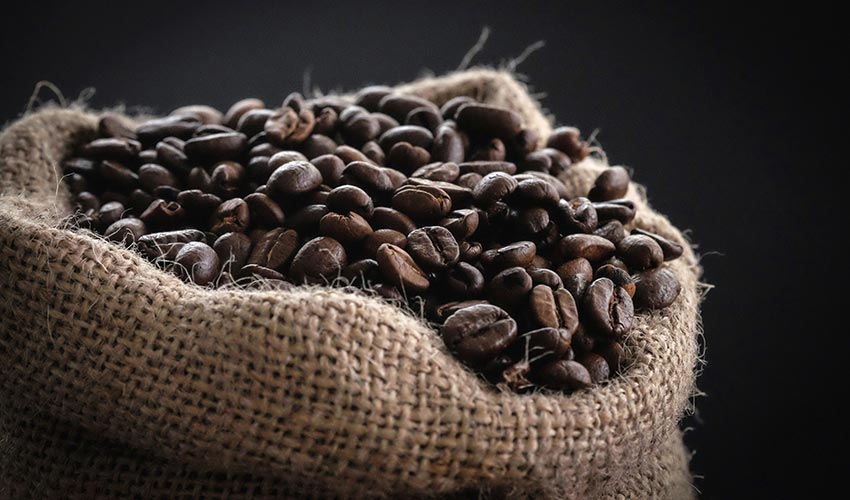Coffee: A Superfood & Plant Medicine?
Coffee, the beloved morning ritual for millions around the globe, is much more than just a pick-me-up beverage. Beyond its aromatic allure and unmistakable flavour, coffee boasts an array of health benefits that may surprise many. While its reputation has fluctuated over the years, recent research has shed light on the positive effects coffee can have on various aspects of health from boosting cognitive function to reducing the risk of chronic diseases.
I do believe there is an excessive amount of coffee that can be consumed in a day, i.e. more than 2 cups a day, of a decent coffee, is in my experience, excessive. Have you ever been told to cut back on coffee before? It’s seen as a catalyst in health decline however, with a little scientific help, we’re going to explore some compelling reasons why your cup of joe may actually be contributing to your well-being! So before I waffle too much here, come join me in some more waffle…about coffee!

Why Is Coffee So Popular?
The popularity of coffee can be attributed to a combination of factors, including its stimulating effects, cultural significance, social aspects, and historical evolution. A good cup of coffee, generally in the morning for most, has become a crucial part of our day (certainly has in mine!). Here are some key reasons why coffee has become one of the most beloved beverages worldwide:
Stimulating Effects:
Coffee contains caffeine, a natural stimulant that blocks the neurotransmitter adenosine, leading to increased alertness and improved cognitive function. This stimulating effect is highly valued, especially in modern society, where people often seek ways to stay awake and focused during busy work days or long study sessions. Or if you have children!
Cultural Significance:
Coffee has deep cultural roots in many societies around the world. From the coffeehouses of 17th-century Europe, where intellectuals and artists gathered to discuss ideas and share creative endeavours, to the traditional coffee ceremonies of Ethiopia and the Middle East, coffee plays a central role in social interactions and community bonding. Its cultural significance has helped cement its place as a cherished beverage in diverse cultures.
Social Aspect:
Coffee has long been associated with socialisation and camaraderie. Whether meeting friends for a casual chat at a café, networking over business meetings, or enjoying a leisurely coffee break with colleagues, coffee often serves as a social lubricant, bringing people together and fostering connections.
Accessibility & Convenience:
Coffee's widespread availability and ease of preparation contribute to its popularity. With the proliferation of coffee shops, cafes, and specialty coffee chains (although go easy on these ones), obtaining a cup of coffee has never been easier. Additionally, the advent of home coffee brewing methods, such as drip coffee makers, espresso machines, and single-serve pods, has made it convenient for individuals to enjoy their favourite brews in the comfort of their homes.
Versatility & Variety:
Coffee offers a wide range of flavours, brewing methods, and customisation options, catering to diverse preferences and tastes. From bold and robust espresso shots to creamy cappuccinos, frothy lattes, and cold brew concoctions, there's a coffee style to suit every palate. This versatility allows coffee to appeal to a broad audience and adapt to changing consumer preferences.
Marketing & Branding:
Coffee companies have invested heavily in marketing and branding efforts to promote their products and create emotional connections with consumers. Through compelling advertising campaigns, innovative packaging, and strategic partnerships, coffee brands have succeeded in building brand loyalty and driving demand for their products. Just always make sure you do your research and are sourcing your coffee from a decent seller.
Health Benefits:
Increasing awareness of the potential health benefits of coffee has also contributed to its popularity. Research suggesting that moderate coffee consumption may be associated with reduced risks of certain diseases, such as type 2 diabetes, Parkinson's disease, and certain types of cancer, has helped dispel some of the previous concerns about coffee's health effects and encouraged its consumption. We’ll look a little more into this further along.
Overall, the combination of its stimulating effects, cultural significance, social appeal, accessibility, versatility, marketing efforts, and perceived health benefits has propelled coffee to the forefront of beverage preferences worldwide, making it a beloved and enduring staple in countless lives across the globe.

Coffee & The Health Benefits
I have been drinking a coffee from a cool brand called Exhale for a few months now (this is not an ad for them, I just love their coffee) as they claim to be a ‘Ridiculously Healthy’ brand offering clean coffee “free from mycotoxins, pesticides, moulds, yeasts and heavy metals”. They claim that a decent coffee won't give you jitters (due to the polyphenol found in good coffee which can protect against anxiety!), can support with stress levels, feed your gut with friendly microbes and improve mental and physical performance. You can have a look on their website below for more information around the science of coffee's effects.
https://exhalecoffee.com/pages/the-scienceI have definitely found that decent coffee does not give me anxious jitters, compared with a lower priced coffee. Therefore I do find it essential that you choose a good quality coffee as the health benefits below will be more applicable with a decent cup of joe. It depends on how the company sources, stores and roasts the coffee as to whether it retains its vitamins so this part is crucial. Let’s have a look at some of the known health benefits coffee boasts:
Enhanced Cognitive Function:
One of the most well-known benefits of coffee is its ability to enhance cognitive function. Caffeine, the primary stimulant found in coffee, works by blocking the inhibitory neurotransmitter adenosine, leading to increased neuronal firing in the brain. This, in turn, improves various aspects of brain function, including memory, mood, reaction time, and overall mental alertness. Numerous studies have demonstrated the acute cognitive benefits of coffee consumption, making it a popular choice for those seeking a mental boost during busy work days or studies.
Improved Physical Performance:
Coffee isn't just for mental alertness—it can also enhance physical performance. Caffeine has been shown to stimulate the nervous system, signalling fat cells to break down body fat, releasing them into the bloodstream as free fatty acids and making them available as a fuel source. Additionally, caffeine can improve endurance by reducing the perception of effort, allowing individuals to exercise for longer durations at higher intensities. Athletes often leverage the performance-enhancing effects of coffee as a pre-workout supplement, with research supporting its efficacy in improving exercise performance across various disciplines.
Antioxidant Richness:
Coffee is a rich source of antioxidants, which are compounds that help neutralise harmful free radicals in the body. Free radicals are unstable molecules that can cause oxidative stress, leading to cellular damage and contributing to the development of chronic diseases such as cancer, cardiovascular disease, and neurodegenerative disorders. The antioxidants in coffee, including chlorogenic acids and polyphenols, help combat oxidative stress and inflammation, thereby reducing the risk of chronic disease and promoting overall health. In fact, studies have suggested that coffee may be one of the leading sources of antioxidants in the Western diet, surpassing even fruits and vegetables in some cases. Seriously.
Protection Against Chronic Diseases:
The consumption of coffee has been linked to a reduced risk of several chronic diseases, including type 2 diabetes, Parkinson's disease, Alzheimer's disease, and certain types of cancer. Research indicates that regular coffee drinkers may have a lower risk of developing type 2 diabetes, with caffeine and other bioactive compounds in coffee playing a role in improving insulin sensitivity and glucose metabolism. Similarly, studies have found that coffee consumption is associated with a lower risk of Parkinson's and Alzheimer's diseases, potentially due to its neuroprotective properties and ability to modulate neurotransmitter levels in the brain. Furthermore, the antioxidants in coffee may help reduce inflammation and oxidative stress, which are implicated in the development of various cancers.
Heart Health Benefits:
Contrary to previous beliefs, moderate coffee consumption has been associated with several heart health benefits. While excessive caffeine intake can elevate blood pressure and increase the risk of heart palpitations, moderate coffee consumption (typically 2-3 cups per day) has been linked to a reduced risk of heart disease, stroke, and heart failure. Some studies suggest that coffee may improve cardiovascular health by enhancing endothelial function, reducing inflammation, and lowering levels of LDL cholesterol and triglycerides. However, it's essential to note that individual responses to coffee can vary, and excessive consumption should be avoided, especially in individuals sensitive to caffeine or those with existing heart conditions. Personally I only have one cup a day, that’s why I choose a decent coffee and I honestly don’t need any more than that. I’ve definitely had reactions to coffee not sourced or roasted well.
In summary, coffee is much more than a morning ritual—it's a potent elixir with a multitude of health benefits. From boosting cognitive function and physical performance to protecting against chronic diseases and promoting heart health, the evidence supporting the health benefits of coffee is compelling. However, like any dietary component, moderation is key. While moderate coffee consumption can be part of a healthy lifestyle for many individuals, excessive intake should be avoided, especially in those sensitive to caffeine or with underlying health conditions. So, the next time you savour that cup of coffee, rest assured that you're not just indulging in a delicious beverage but also nourishing your body and mind in more ways than one.

Coffee Alternatives
We want to be versatile and include everyone on this voyage into coffee, so what about those that ARE looking to cut back on caffeine for various reasons. For those looking to reduce their coffee intake or seeking alternative beverages, there are several options available that provide a similar energy boost or satisfying flavour profile. I have looked into brands like DirtTea or MudWtr, which are highly sought after and the idea of having various mushrooms and Cacao as a replacement have been increasingly popular. Specific mushrooms are great alternatives to coffee. To be honest I actually have mushroom powders in smoothies once a day as well as my morning cup of joe. One of these powders has been our Reishi mushroom powder which you can find currently in our sale here. Here are some popular coffee alternatives:
Tea: Tea offers a variety of flavours, caffeine levels, and health benefits. Green tea, black tea, white tea, and herbal teas like chamomile and peppermint are widely consumed alternatives to coffee. Green tea, in particular, contains caffeine and antioxidants, providing a gentle energy boost without the jitters often associated with coffee. We sell a lovely Australian tea that I love called Gumby Gumby Tea, containing various health benefits. You can check it out here.
Matcha: Matcha is a type of powdered green tea made from finely ground green tea leaves. It contains caffeine and L-theanine, an amino acid that promotes relaxation and mental clarity. Matcha offers a smooth, creamy texture and a slightly sweet, grassy flavour, making it a popular coffee substitute for those seeking a more mellow energy boost.
Yerba Mate: Yerba mate is a traditional South American beverage made from the leaves of the mate plant. It contains caffeine and other stimulants, providing a sustained energy boost without the crash associated with coffee. Yerba mate has a distinct earthy flavour and is often consumed hot or cold in a gourd with a metal straw called a bombilla.
Chicory Coffee: Chicory coffee is made from roasted and ground chicory root, which has a rich, slightly bitter flavour reminiscent of coffee. It is naturally caffeine-free and often used as a coffee substitute or coffee extender to add depth of flavour. Chicory coffee is popular in New Orleans-style coffee blends and can be enjoyed with milk or as a standalone beverage.
Golden Milk (Turmeric Latte): Golden milk is a warm, comforting beverage made from milk (dairy or plant-based) and turmeric, along with other spices like cinnamon, ginger, and black pepper. Turmeric contains curcumin, a compound with anti-inflammatory and antioxidant properties, making golden milk a soothing and healthy alternative to coffee.
Mushroom Coffee: Mushroom coffee blends coffee with powdered medicinal mushrooms like chaga, lion's mane, or reishi. These mushrooms are believed to offer various health benefits, including immune support, cognitive enhancement, and stress reduction. Mushroom coffee typically contains less caffeine than regular coffee and has a unique earthy flavour profile.
Decaf Coffee: Decaffeinated coffee is a suitable alternative for those who enjoy the taste and ritual of coffee but wish to reduce their caffeine intake. Decaf coffee undergoes a process to remove most of the caffeine while retaining the flavour compounds present in regular coffee. It offers a similar taste experience without the stimulating effects of caffeine.
Fruit and Vegetable Juices: Freshly squeezed fruit and vegetable juices provide a refreshing and nutritious alternative to coffee. Options like orange juice, grapefruit juice, carrot juice, and green juice blends offer vitamins, minerals, and hydration without the caffeine content of coffee. I generally drink and recommend freshly juiced pineapple juice for a boost to the immune system.
Water: While not a direct replacement for coffee, staying hydrated with plain water throughout the day can help maintain energy levels and promote overall well-being. Drinking an adequate amount of water is essential for optimal hydration and cognitive function.
Herbal Coffee Alternatives: There are various herbal coffee substitutes available on the market made from roasted grains, nuts, seeds, and botanicals. These products mimic the flavour and aroma of coffee without containing caffeine. Popular options include roasted barley, dandelion root, chicory, and carob-based coffee substitutes.
Ultimately, the best coffee alternative will depend on individual taste preferences, caffeine sensitivity, and health goals. Experimenting with different options can help find a satisfying beverage that provides the desired benefits without relying solely on coffee.

Coffee stands as a beacon of health benefits in the world of beverages. Its rich array of antioxidants, including chlorogenic acids and polyphenols, as discussed, offer protective effects against various diseases such as cardiovascular ailments, neurodegenerative disorders, and certain cancers. The stimulating effects of caffeine enhance cognitive function, improve alertness, and elevate mood, contributing to overall mental well-being. Moreover, coffee consumption has been associated with a reduced risk of type 2 diabetes, liver diseases, and Parkinson's disease. With its myriad of health-promoting compounds and potential to enhance quality of life, coffee rightfully earns its place as a beloved beverage in the pursuit of a healthy lifestyle.
“Coffee is a cup of hope in a world full of chaos and Mondays” Anonymous






















